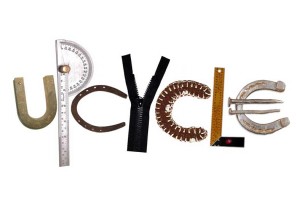I may get commissions for purchases made through links in this post.

You’ve been there too right?
Maybe it was an email with an alert with a low checking balance.
An obscene credit card bill statement or a glance at your meager savings account (or lack thereof)
Or even just the mere thought of how long you’ll be carrying around student loan debt, that finally gave you the wakeup call.
You realize now is the time to buy less, stop overspending, and save some money.
We all know that we have to do this, but the how of it all – the steps we need to take to live a more balanced and frugal lifestyle – can seem overwhelming.
Here are easy tips you can use right now. They will set you in the right direction to a healthier relationship with your money.
1. Assess your financial health
You may think that your money is disappearing into thin air, but surprisingly enough you’re actually making deliberate choices everyday on how you are spending it.
Keep track of your spending by looking at your bank and credit card statements. Chances are you’ll start to uncover trends and patterns on what you value.
Eat out too much? Maybe too many trips to buy the latest fashion styles? Video Games? Whatever it may be this is the chance to confront your overspending issues and take charge of your finances.
2. Understand why you overspend
We are all emotional beings. Some of us tend to overeat when we get stressed, others go for a run, and some of us reach for our credit cards and head for the malls. Spending money on ourselves can give us a temporary high.
A little treat here and there won’t hurt you might think, but when it becomes a coping mechanism for a much deeper problem it can become addictive and wreak havoc on your personal finances. Identify what triggers your spending whether it be stress or something more problematic. Addressing those issues head on can help you to stop overspending and enrich your life in general.
Stand still, reflect and realize you’re stressed. Know that shopping helps you to relax. But it comes at a cost, shopping is a short-term solution that eventually causes even more stress. Shopping is not better than therapy, often it is the reason you may need therapy. Find better ways to relax. It’s true what they say, nature is better than therapy.
3. Make a budget
I’m sure you’re thinking, “oh make a budget, what revolutionary advice.” But trust me, once you start budgeting and stick to it you can get hooked. Inside tip: It’s what all the entrepreneurs and millionaires do.
Set aside money for things you must pay off like rent, groceries, car payments, utilities and such and see what’s left. If there is any left, take a portion of that and save it, then take another portion and keep it as fun money.
Cutting spending cold turkey is not sustainable, but making smarter choices on what you want to spend with this extra cash can keep you from overspending.
4. Decide on how you want to spend your fun money
Contrary to what some might say, money does not have to be evil. It is our relationship to it that can be, and in turn we are a bit evil to ourselves.
Keep your relationship with money happy by realistically prioritizing how you want to spend your fun money.
This extra fun money should be used towards things you know you’ll just be tempted to buy later. Generally some of these things may be those you uncovered in step one – assessing your financial health.
Allow yourself to spend on those things, but learn to shop for them wisely and within your budget.
5. Shop smart, shop like frugal millionaires
Start shopping like the pros. You wouldn’t believe some of the finds you’ll discover in the most unexpected places.
Remember the old saying, one man’s trash can be another man’s treasure?
This is so true. If you like spending your money in-person take a look at yard/garage sales, consignment stores, and pawn shops for some awesome finds.
If you’re more of an online shopper take the time to compare prices and find the best deal at a reputable online store.
Some third-party sites can get you what you need at a lower price. If you don’t mind buying used or refurbished products try finding sites that sell items in those conditions.
6. Deliberate your purchases
Even if you may be lucky enough to have a little fun money squeezed into your budget and you find a good deal you should still try sleeping on it.
Most of the time we get roped into making impulse purchases that we really don’t need or want. Sleep on the decision and see how you feel about it the next day. Buy things that are really worth the money only.
Two quick tricks
- Make a deal with yourself. Use the 48 hour or one month rule. Do you still want it after that time, go buy it. You will be surprised how often you will not desire that product anymore when time has passed.
- Make a quick calculation about how long you have work for a certain gadget. “Do I really think that new smart watch is worth 32 hours of my time?” It helps you put things in perspective.
[bctt tweet=”#Frugal money tip: spend money where you spend time. You’ll get the most bang for your buck”]
Most likely you’ll have forgotten about it and the feeling of wanting to buy it will go away. If it doesn’t and it’s within your means treat yourself. It may keep you overspending on something else later.
7. Keep yourself from being tempted
If you know you are an impulse buyer (and who isn’t? we’re all in some way), stay away from places that make the temptations stronger.
Steer clear of the mall, shopping markets, where bright lights, alluring signs, tempting scents, and mind-altering music are kneading your strong-willed brain into a mindless consumer.
If you did enter that store for a quick run through, remember to withstand the temptations at the checkout line.
[bctt tweet=”#frugal shopping tip: be strong at the checkout line (it’s where they manipulate you the most).” via=”no”]
8. Shield your easy-manipulated brain from the exploiting effects of advertising*
Unsubscribe from store emails and newsletters to keep your mind off the latest sales or new product arrivals. Try to avoid as much advertising as possible.
I’m not only talking about advertising brochures delivered via mail but get up to the kitchen or change the TV channel when there commercials start playing. Or just turn your head away.
Without being constantly bombarded with these messages to spend you are likely to forget that you want these things and save a little more green (yep, that’s a pun, you’ll save both money as well as the environment).
- * This is not some kind of new-age, hardcore anti-consumerist message. The ancient Greeks already knew that advertising makes us feel insecure and unhappy in the long run. More here.
Advertising works by convincing us on a subconscious level that the product being marketed will provide us with things we need to be happy. While in fact the ad is manipulating our need for friendship or security.
Using a few of these tips can put you in the right direction, but using all of these can provide a bigger impact on cutting spending. With these tips in mind, you will soon reap the rewards that a more frugal and minimalistic lifestyle can bring.
[bctt tweet=”Greek philosopher Epicurus blamed advertising for clouding our view of the path to happiness. #PhilosphyQuote ” via=”no”]
9. Consider a shopping fast
While the best approach for some of us can be spending in moderation, for others a little shopping fast can kickstart our new attitude of being more frugally minded.
If you’re a serial spender, stop all extraneous purchases for at least 8 weeks. According to popular lore it takes about 21 days for a behavior to become a habit. This however, is a myth.
Obviously it all depends on the circumstances, behavior, and the person but science-backed sources mention it takes about 2 to 8 months to form a new habit, not 21 days.
All the more reason to start right now with developing financially healthy habits. It will help you reap rewards in the long-term. If you can’t help it and really want to buy something, try opting for products that save you money instead.
10. Calculate work hours needed for each purchase
One tactic that has kept me grounded and prevented me from buying expensive items is doing the math to determine how much time I would need to work to pay off the purchase.
Imagine all those hours toiling, commuting and getting up early. Is your hard-earned cash really worth that new jacket?
This works wonders, especially when making big buying decisions that can easily take you a long period of time to purchase.
If you’re using a credit card take into consideration the amount of interest you will also need to pay off to purchase the item. Breaking down the dollar and cents of the purchase into work hours will most likely keep you from reaching for your wallet.
[bctt tweet=”‘You can never get enough of what you don’t need, because what you don’t need won’t satisfy you.'”]
11. Set buying guidelines
When making any big decisions I tend to give myself some clear guidelines and decision criteria before making a choice on something.
For shopping, this would mean setting about four or five decision criteria that the purchase must before you are allowed to buy it.
For example when buying a piece of clothing it might have to meet the following standards: be a specific brand, a specific color, fit in a way that you feel super flattered in, fall in a specific price range, and be something that is needed.
It is important though to be realistic with yourself and make these standards strict or almost anything you come across will fall into this criteria and keep you spending on unnecessary items.
12. Use a physical cue to keep you from buying
This may sound silly, but using a psychological tactic used to cut other addictions like smoking or overeating can help.
Wearing a rubber band on your wrist and snapping it each time you become tempted to shop, or pinching yourself will help associate a negative physical reaction with your desire to shop.
As this is somewhat like pulling a “The Dog Whisperer ‘Tsst-ing’ Cartman” on yourself, you may also use a more positive physical cue to keep you from overspending.
Put up your financial goals on your refrigerator or on your cell phone to remind you why you’re being more frugally minded. Write down how much you will be saving in a week.
Draw a mental picture of what you could do with that money if you were financially sound (after all, that’s the end goal).
13. View your overspending hacks as a lifestyle change, not a quick fix
Similar to dieting, when curbing your spending habits you have to approach it as a lifestyle change and not a temporary fix to a long-term problem.
When you incorporate some of the tips mentioned above into your everyday life you’re sure to make them a habit that can actually turn your life around.
Keep in mind to embrace longer timelines than the hyped 21 days. Incorporating new habits in your lifestyle is a process that takes time and includes trial and error. In other words, it’s okay to fail, as long as you get back to it.
So instead of feeling deprived give yourself small chances to “splurge” within your means, but make sure to get back on track as soon as possible.
A blissful last splurge would be on To Buy or Not to Buy: Why We Overshop and How to Stop. This book contains lots of insights a shopaholic probably would never have thought about.
The book is not about shopping bargain bins and clipping coupons to save money. It’s not even about shopping only for things you actually need.
What it does is give you the power of self-knowledge and, as a result, devotion. It helps you understand the psychological reasons for your compulsive behavior and gives you a backbone. It has helped lots of people overcome their excessive shopping ordeal.
Commit to your new system and you will become more financially stable. Perhaps, you’ll get rich while you’re at it.
More frugal tips on how to spend less on groceries and how to save money in the kitchen.
One more by the wise Epicurus:
[bctt tweet=”Do not spoil what you have by desiring what you have not; that what you now have was once among the things you only hoped for” via=”no”]
Author: Dialey





















Add Comment